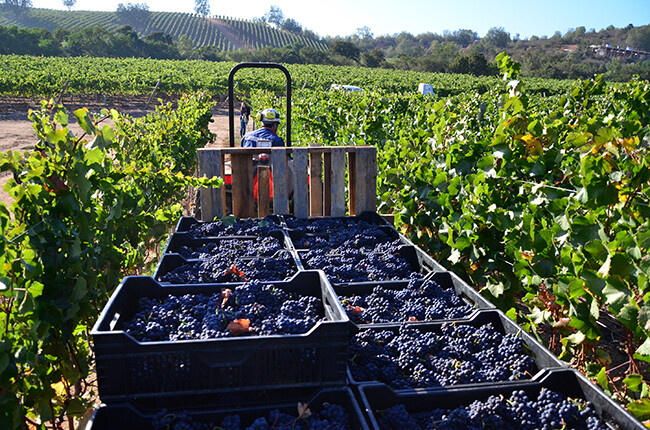
The 2025 vintage in most of Argentina began with record high temperatures and an unusually early budbreak. However, as it progressed into the latter stages, unexpected rain and cool weather completely reversed its character. While winemakers express high expectations for the quality of grapes harvested in both the early and late periods, the characteristics of the wines produced from these two phases are expected to be distinctly different.
The previous winter, abundant snowfall and low temperatures laid a solid foundation for healthy vine growth and high yields across Argentina. This was a positive sign, offering a potential recovery from the low yields of 2023 and 2024. Ample rainfall in the spring also helped mitigate the threat of frost damage. Sebastián Zuccardi, winemaker at Zuccardi Wines, explained, "The early rains played a crucial role in signaling the start of a cool season, helping to provide the soil with sufficient moisture so that the vines could begin vigorous growth."
However, the smoothly started growing season encountered unforeseen changes. Record-breaking heatwaves in January and early February drastically accelerated the ripening of the grapes. This led to unprecedented early harvests in some regions, with the Malbec variety, in particular, being harvested up to three weeks earlier than the average year. Juan Pablo Murgia, winemaker at Argento Wine, expressed his surprise, stating, "We harvested our Agrelo Malbec vineyard on February 17th, which is a historical record for early harvesting."
This early ripening posed not only logistical challenges, with the harvest of white varieties and some red varieties overlapping, but also oenological difficulties. Murgia emphasized, "The heatwave stops the ripening of the grapes while evaporating moisture and increasing sugar levels, requiring very careful management in both the vineyard and the winery." He also added, "For early-harvested red wines, particular attention must be paid to the maceration process as the tannins may not be fully mature."
Interestingly, the unusual weather conditions of this vintage led to an exceptional situation where the harvest was completed earlier in the San Juan region, located north of Mendoza. This is a stark example of how unpredictable the 2025 vintage has been.
Northern Argentina also experienced an early harvest around the same time, with yields appearing positive. Paco Puga, a consultant across northern Argentina and winemaker at El Porvenir Winery, reported, "Early harvesting took place in the central part of the Calchaquí Valleys, with the Malbec harvest starting in early February."
Argentina's main wine-producing regions include Mendoza, San Juan, Salta, La Rioja, Neuquén, and Río Negro. Each region has its unique terroir, and the characteristics of the wines produced also vary. In the case of the 2025 vintage, the impact of heatwaves and rainfall likely differed across each region, which is expected to influence the style of the wines. For example, the high-altitude Salta region, with its significant diurnal temperature variation, may produce wines with more complex flavors due to the slow ripening of the grapes. On the other hand, the relatively warmer San Juan region may yield fresh and fruit-forward wines due to the early harvest.
Furthermore, Argentina's main grape varieties, besides Malbec, include Cabernet Sauvignon, Syrah, Chardonnay, and Torrontés. Each variety may have reacted differently to the unusual weather conditions of 2025, which will significantly impact the quality and characteristics of the final wines. For instance, the Torrontés variety, mainly cultivated in the northern regions of Argentina and known for its aromatic profile, will be interesting to observe how the early harvest has affected its aromas.
The Argentina 2025 vintage appears poised to yield wines with two distinctly contrasting characteristics due to the unprecedented weather events. Wines made from grapes harvested during the warm and dry early season may possess high sugar levels and concentrated flavors, while those made from grapes harvested during the cool and wet late season are expected to feature freshness and finesse. Wine enthusiasts will have an intriguing opportunity to experience these two unique styles of Argentine wines.
[Copyright (c) Global Economic Times. All Rights Reserved.]






























